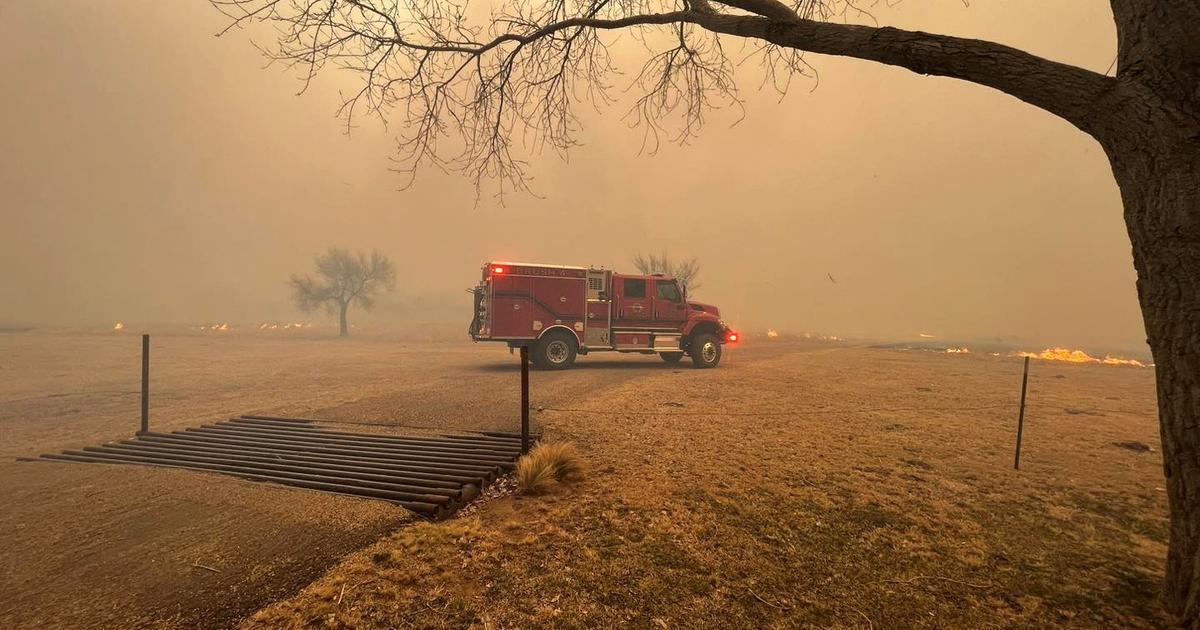Enlarge image
Photo: Cody Duncan / Cavan Images / IMAGO
An interesting archaeological survey from 2011 begins with this pun: "When humans began to control fire is a hotly debated topic."
Some believe that pre-humans in Africa started fires 1.6 million years ago.
In any case, it is fairly certain that our ancestors began to burn stuff regularly and deliberately 300,000 or 400,000 years ago.
That and the manufacture of stone tools are considered to be "the most significant events in the technological development of early humans," according to the study.
Dig things up, burn things
We now manufacture our tools differently, but burning stuff is something we haven't gotten used to over the millennia, on the contrary.
Sometime fairly recently, Homo Sapiens also started burning stuff that they had dug up rather than picked up or harvested from the ground.
Mankind really got started about 200 to 250 years ago, and the results are well known: If we continue to burn the unearthed carbon from the time of the dinosaurs at this rate, it will soon be as hot on earth as it was in the time of the dinosaurs.
There are people who seriously cite this as evidence that nothing needs to be done about the man-made heating of the earth, because the dinosaurs were doing very well until the asteroid hit.
Disadvantage: It was not only much hotter back then, the sea level was also 170 meters above today's level.
That had to do with shallower seas too, but unfortunately we don't have time to wait for geological changes to come to our aid.
They last for many millions of years, but the sea level is already rising.
Smells good, kills people
But back to the fire.
We humans have been using it for a very, very long time, and of course something like that has an impact.
We love to burn stuff.
We build burn places in our houses without need, but because of the cosiness.
We light campfires, just like when you would have frozen to death or starved to death without it.
We find the smell of some nitrogen oxides and aromatic hydrocarbons cozy.
As long as he doesn't become too dominant.
Then we get scared.
Rightly so, but mostly too late, because millions of people die every year from diseases caused by smoke.
The reinterpretation of the dangerous into the positive
It used to be a sensible exchange - warm food and warmth for the risk of chronic bronchitis and lung cancer.
Today it actually isn't anymore, but millions of people still have to burn stuff to survive, often indoors.
Burning excavated stuff instead of wood is a threat not only to the health of individual people, but to the health of all of humanity.
The most dangerous component of the smoke in this respect cannot be seen, it is visualized here:
Now we have to accomplish a psychological feat as quickly as possible: We have to dissolve the hundreds of thousands of years old association "fire = good".
The fact that smoke is actually dangerous and unhealthy, but that we constantly produce it, creates cognitive dissonance.
In order to reduce them, over the millennia we have reinterpreted the very dangerous properties of fire as positive ones - smoke has a scented smell.
Or?
The beautiful chimney
The Viennese historian Bernhard Denscher, who specializes in the history of posters, once wrote: "In the self-portrayal of industrial companies, the smoking chimney was always an unreservedly positive sign of economic self-confidence." For a long time, political parties across the spectrum also liked to post pictures with smoking chimneys.
The graphic artist Klaus Staeck satirized this once in the eighties: darkly smoking chimneys, combined with "Brothers to the Sun to Freedom / Brothers to the Light."
The smoke as a symbol of progress is not quite as popular as it used to be, but it is obviously very difficult for us to really let go of our enthusiasm for burning stuff.
The nonsense with the internal combustion engine
This can be seen, for example, in a current sentence by FDP politician Hans-Ulrik Rülke, pronounced at the Epiphany's meeting: "The problem is not the combustion engine, but the question of what it burns." He is concerned with the fiction that soon be driving around masses of cars with synthetic fuels in their tanks.
That won't happen, the auto industry now knows that too.
Even Chrysler wants to get out of the combustion engine by 2028.
Synthetic fuels, "e-fuels", will probably play a certain role - but only for areas such as aviation, in which there is currently no other way.
The fact that Rülke says something like that is probably not only due to people's love of burning things, but also because he is the parliamentary group leader of his party in the Porsche and Mercedesland of Baden-Württemberg and believes that people there want to hear something like that.
Neither of these makes the sentence any more correct.
Incredibly inefficient
The obsession with burning things has put the German auto industry in a very dangerous position: "Some of the best brands you can think of are currently being rated as if they were going to go bankrupt in four to five years," said the auto industry analyst Arndt Ellinghorst recently. Financial Times «said.
Because of their love for the combustion engine.
The fact is that internal combustion engines are incredibly inefficient tools for providing energy.
Three quarters of the energy used is literally burned, only about 20 percent move the car.
If you also include the way the fuel takes to reach the tank, only a fifth of the energy is left for driving itself.
An e-car, on the other hand, has an efficiency of 64 percent, including everything.
More than three times as much as a combustion engine.
more on the subject
Not young and hip: Entrepreneurs feel thwarted by the FDPBy David Böcking, Simon Hage, Leon Holly and Anton Rainer
Internal combustion engines are actually very bad engines, even if this is currently still an extremely unpopular fact in Germany.
The auto industry has now grudgingly accepted it.
Even in this industry, the FDP is now a bit annoying with its love of combustion.
Porsche's electric Taycan sells better than the 911.
We are entering a new age
When I stumbled upon the excerpt from Rülke's speech, I had to think of a hopeful tweet from climate researcher Stefan Rahmstorf from October 2021: “Around a million years ago, mankind learned to deal with fire.
Now, thanks to science, we're smart enough to cook, drive, heat our homes, and more without burning stuff.
We are experiencing a turning point in human history! "
That's exactly how it is: Despite bitter resistance from various industries, we are now ready to leave the age of fire behind us.
Energy from wind, gravity and, above all, the sun is now unrivaled cheap, and it is also much more efficient and versatile.
We can and must, pathetically speaking, leave the age of fire behind and usher in the age of (sun) light.
To the sun to freedom, literally.
To do this, we have to say goodbye to some dissonance-reducing, in truth absolutely irrational reinterpretations: Smoke smells good, internal combustion engines sound nice, chimneys are symbols of progress.
The fictional Texas billionaire quoted at the beginning from Neal Stephenson's novel "Termination Shock" stands for the alternative: He lets masses of sulfur shoot into the atmosphere so that people can keep burning things.
The point is to darken the sun and thus stop the sea level from rising.
Personally, I prefer an Age of Light.














